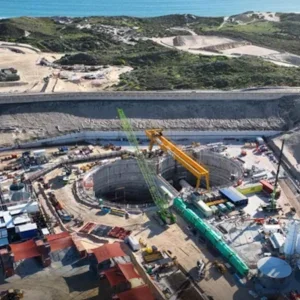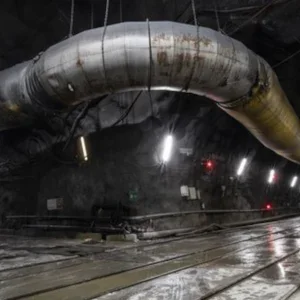Detroit’s city council, feeling the heat from the state government, just made it before the late September deadline to approve the award of the contract to build the first, southern, section of the Upper Rouge combined sewer outfall (CSO) project.
Michigan state complained to the City Council about what it saw as a procurement hold-up. It charged there was a problem due to delayed environmental improvements and added there was also a risk of losing the finance in place, which would need other arrangements at greater cost to taxpayers.
The City of Detroit Water and Sewerage Dept (DWSD) is building the 5.75km long south tunnel Upper Rouge CSO as part of a larger project that will also see a north tunnel contract.
The CSO is to be excavated at a depth of 46m and will have a finished diameter of approximately 9.25m. The contract – PC-764 – also calls for construction of a 24.6m wide by 61.5m deep access shaft to launch the TBM, plus six connecting adits/deaeration chambers of varying lengths of 24.5m-443m and between 2.15m and 9.85m i.d. Proposals for initial and final linings were accepted in the bids.
DWSD received the bids in April but the state’s environmental quality department complained that the committed award deadline of early August had passed, and posed problems. In turn, DWSD had been repeatedly complaining to the council but by late last month the contract had not yet been awarded. As a result, the state wrote a formal complaint from the environmental quality director, Stephen Chester.
The letter, of 24 September, warned that council ‘inaction’ threatened the entire project, which is described as one of the state’s most significant water pollution schemes. Chester says that failure to decide would likely lead to a restart of the procurement process, months of delay for the contract and also the following contracts, possibly adding to construction price risk.
In addition, there was the risk of losing up to US$161M of debt finance on below-market, preferential terms from the State Revolving Fund if the contract was not awarded before the end of September. More delay would have resulted in taxpayers paying US$100M extra over 30 years.







